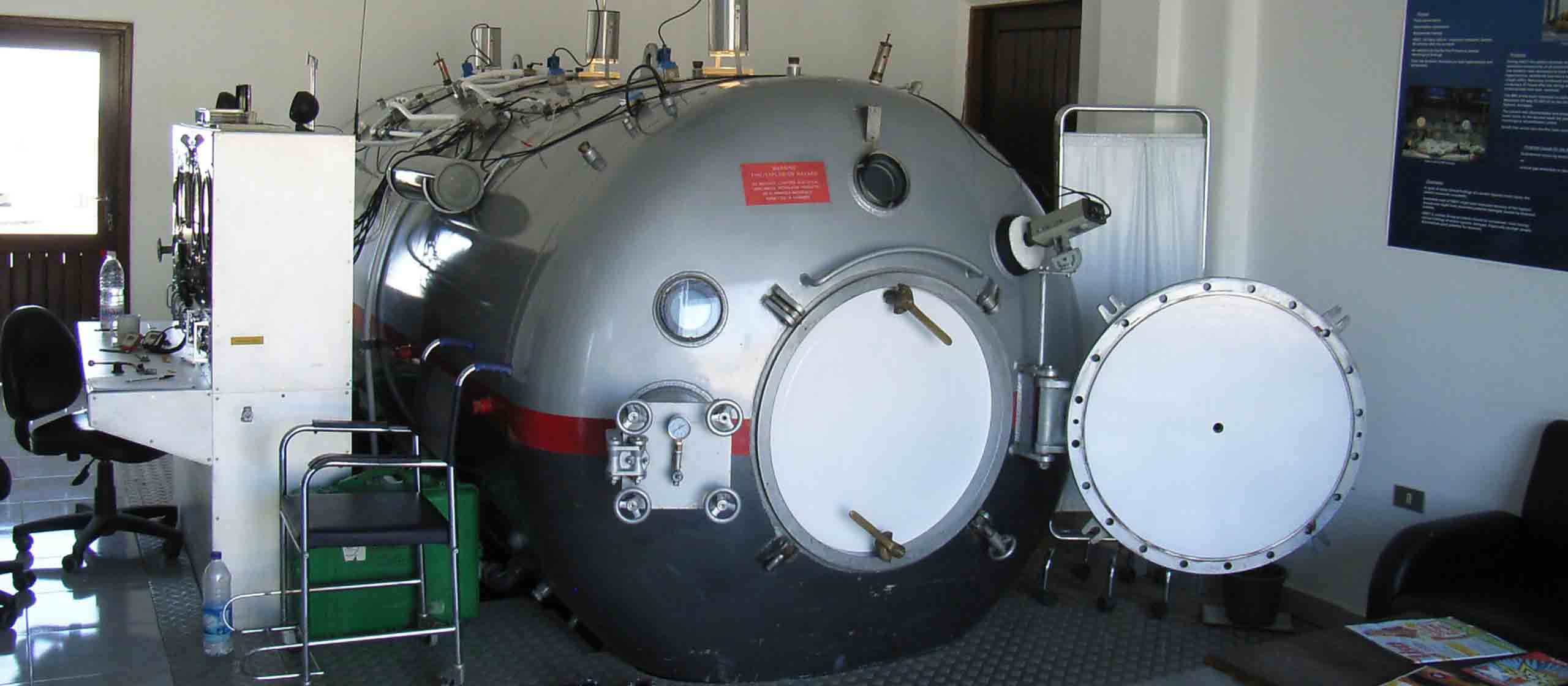Dive Travels
Assisting Recompression Chambers worldwide
After a dive accident, a diver needs to get access to the most appropriate care and be treated as soon as possible. However, it isn’t always that simple. Many factors might actually determine where a diver should be taken too; it is not always a recompression chamber.
Our hotline will need to take into consideration factors such as the severity, type of accident, symptoms and the time needed to get to, for example, a chamber. All of this while making sure the diver gets the best possible treatment in a safe environment.
And here is where RCAPP steps in. Since 1997, the mission of RCAPP is to assist and partner with recompression chambers in areas of equipment, training and emergency assistance, to ensure their availability, quality and safety in times of need. DAN has been actively promoting this program, reaching over 200 chambers throughout the world, even in the most remote countries.
It actually is in these remote locations where RCAPP originally started. Due to the remoteness of some chambers and the fact that most of those chambers only treat dive accidents and are not hospital based, it is important that we know that, when we refer a diver to such a facility, they are in good hands.
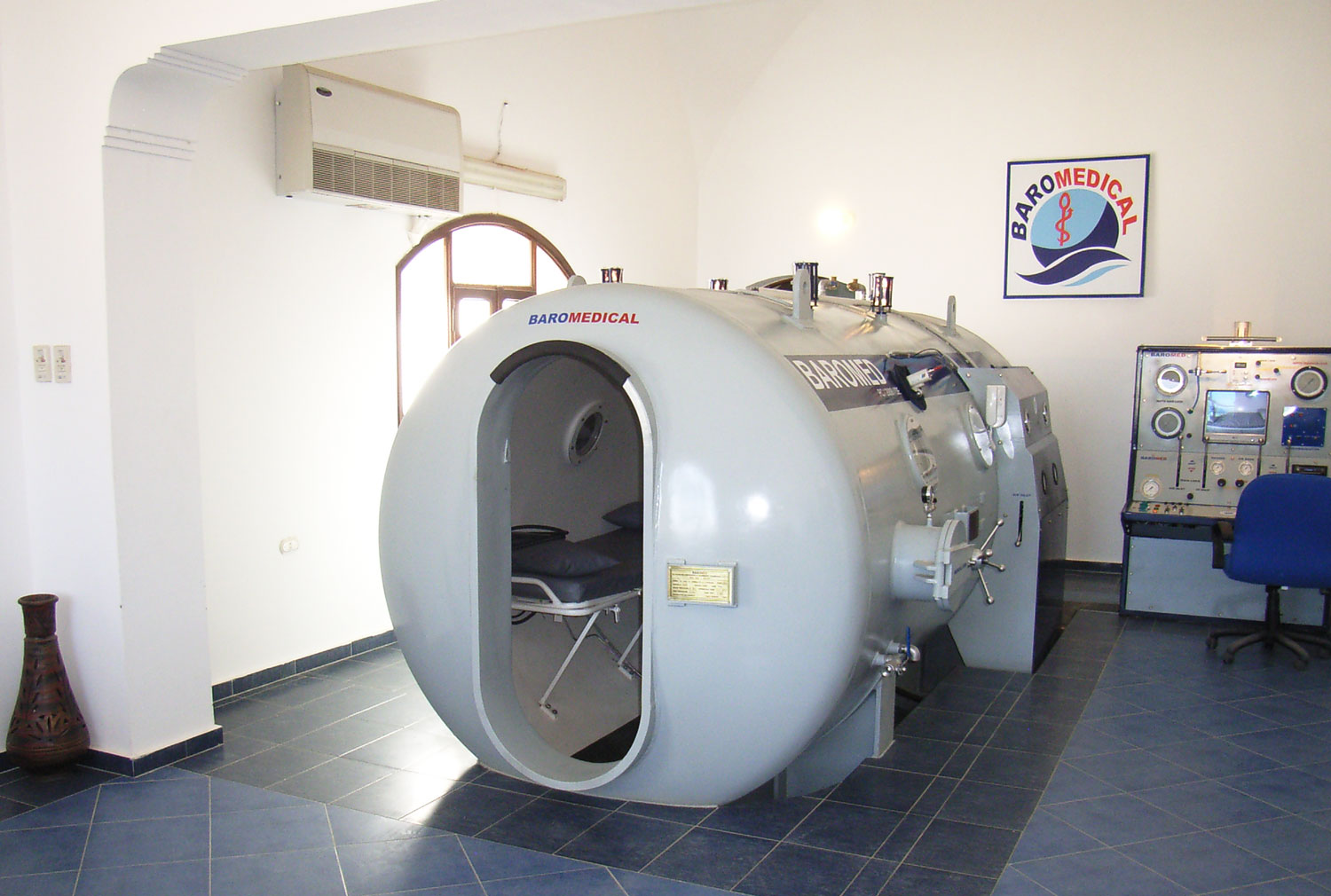
The Recompression Chamber Network
As you can imagine, we need to know where chambers are located, which languages they speak and what kind of medical care they can offer. We therefore contact chambers all over the world, asking them to compile a questionnaire. This data then gets inserted in a worldwide chamber database, used by the DAN medical staff and Case Managers in case of need.
This is also a perfect moment for us to get to know the chamber a bit better and to evaluate, especially for facilities in remote locations, if we can assist them with any safety, technical or medical issues they might have.
Recompression Chamber Risk Assessment
One of the services we offer to these chambers is a risk assessment, where a team of assessors reviews the facility's functionality, intrinsic safety, operating procedures and the level of training of the staff.
After this visit, the team returns back home with plenty of pictures and technical notes that are used to compile a personalized Risk Assessment Report, with specific recommendations for the visited chamber.
The confidential report, with applicable and appropriate feedback and information, is then forwarded to the Recompression facility and is intended to guide them in addressing and improving highlighted points in order to comply with the standards and guidelines as described in the International Risk Assessment Guide, a guide authorised by Francois Burman, Pr. Eng, President of DAN Southern Africa and Director of Underwater & Hyperbaric Safety (DAN America).
This is also the moment where we best understand the needs of the hyperbaric chamber facility and can offer technical or medical assistance. This goes from resolving some basic technical issues they might face, but can also include diving medical advice from one of our specialists.
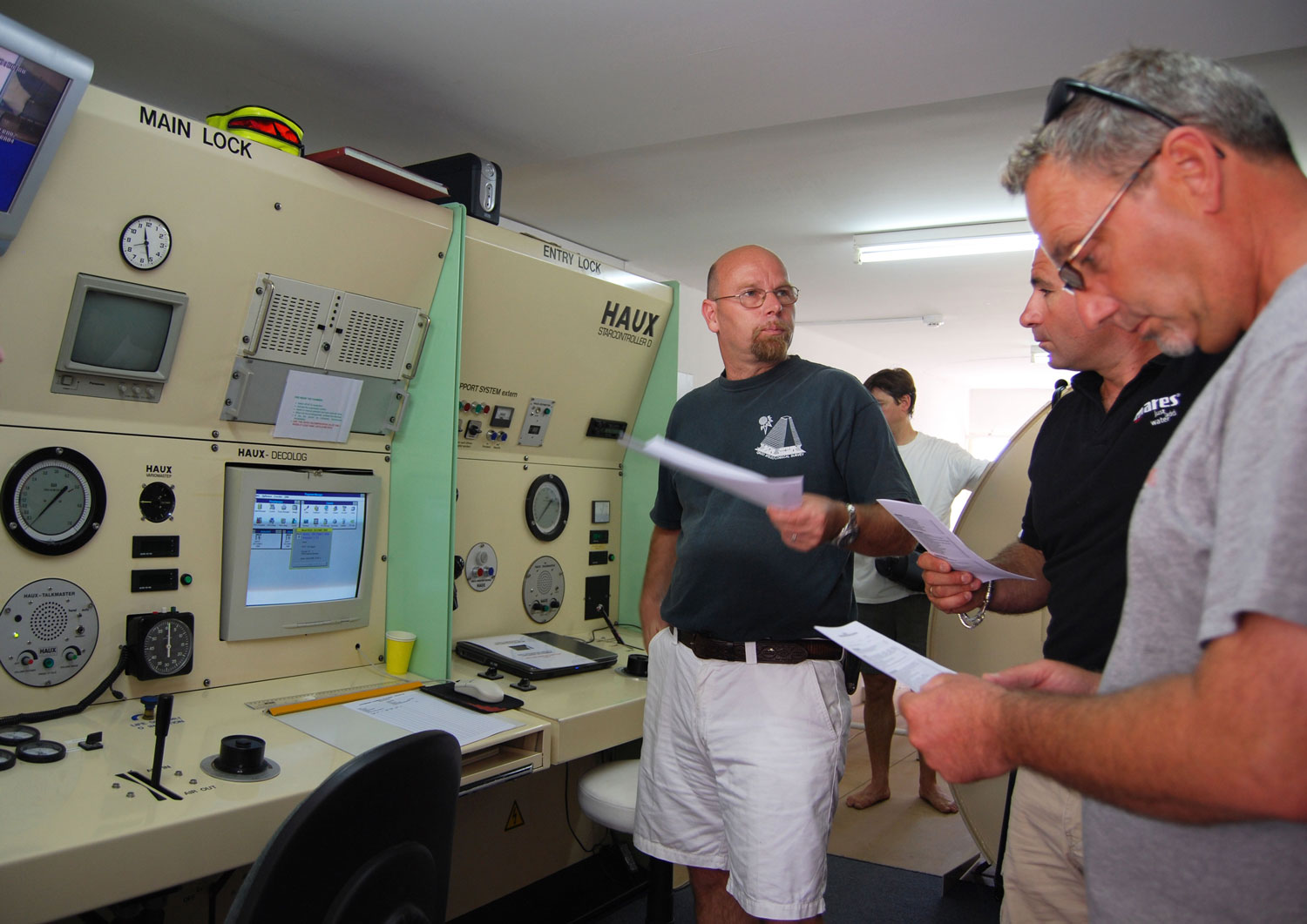
Hyperbaric Chamber Courses
One of the issues Hyperbaric Chambers in remote locations are faced with relate to their staff. Many chambers rely on local diving staff to help them during hyperbaric treatments. And since these persons can change over time, new staff frequently need to be trained. Also, their medical staff rotate out or move on. This medical staff (Doctors) then train the local staff, but without any formal training program or student materials. Course content and organisation will thus change, depending on the doctor’s own teaching and this creates confusion amongst those who work at the chamber.
The DAN RCAPP team soon recognised the need for personalised training at such facilities and developed a free, 3-day Chamber Attendant course and a 5-day Chamber Operator course, aimed at teaching the local staff on how to work as an attendant inside the chamber and how to operate a chamber from the outside. Since not every chamber is the same, personalised slides and manuals are created and made for every chamber. These are then left with the chamber so they can organise future training themselves.
Additionally, in order to help them with some technical issues, a hyperbaric viewport and basic maintenance course was developed and made available to the network of hyperbaric chambers.
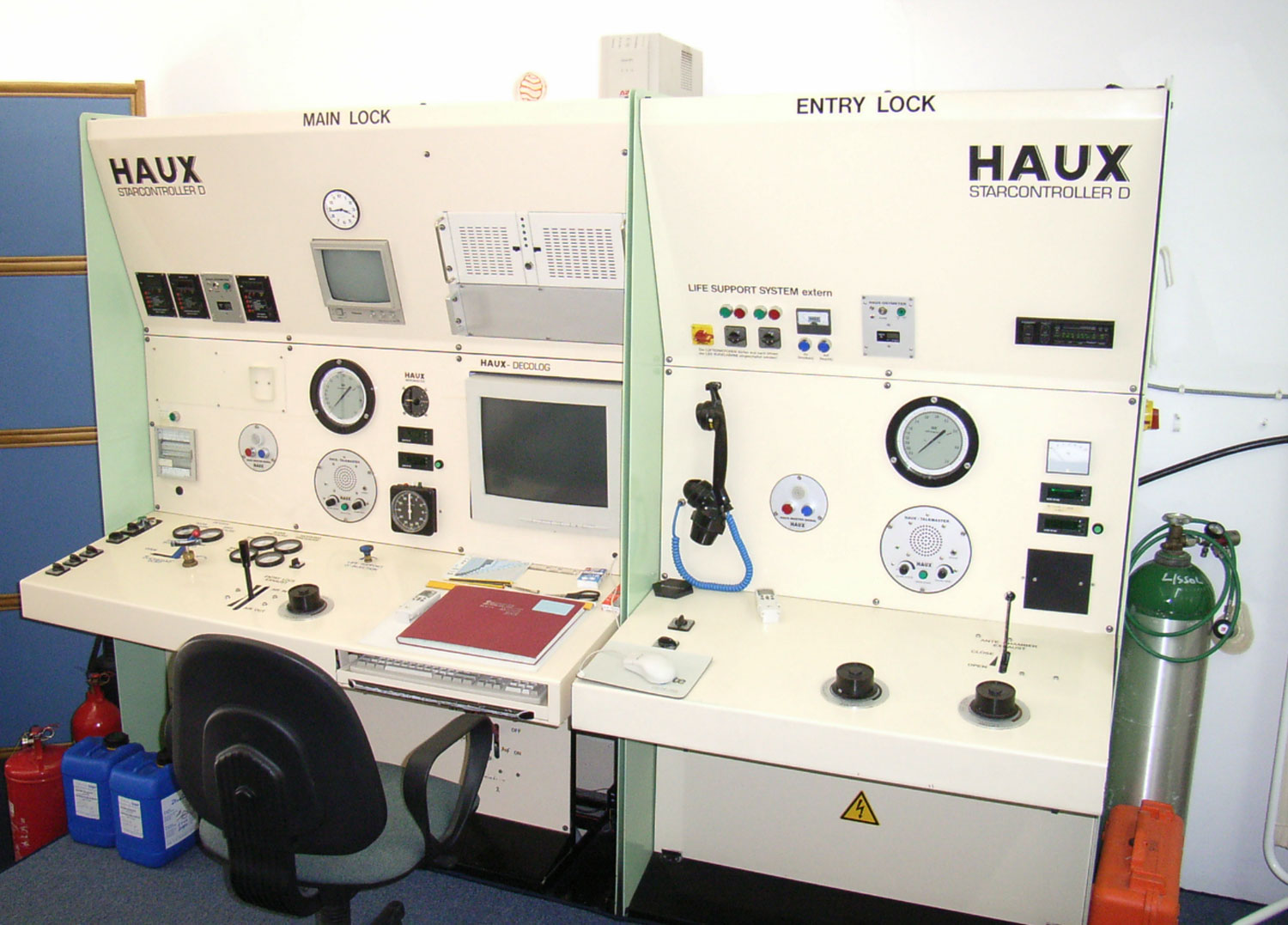
RCAPP Sponsorship: Hyperbaric Safety Director Course
To increase safety in a hyperbaric facility, each chamber should have a specially trained Safety Officer, overseeing all that relates to safety in a hyperbaric setting. However, getting trained isn’t always the easiest and cheapest thing to do.
Every year, in order to assist needy chambers, DAN offers the opportunity, to a remote hyperbaric facility, to send a staff member to the US and to attend the International ATMO Hyperbaric Safety Director Training Course. Each chamber participating in RCAPP can send their request for sponsorship to DAN Europe. All received requests are evaluated and a candidate picked from amongst the received requests.
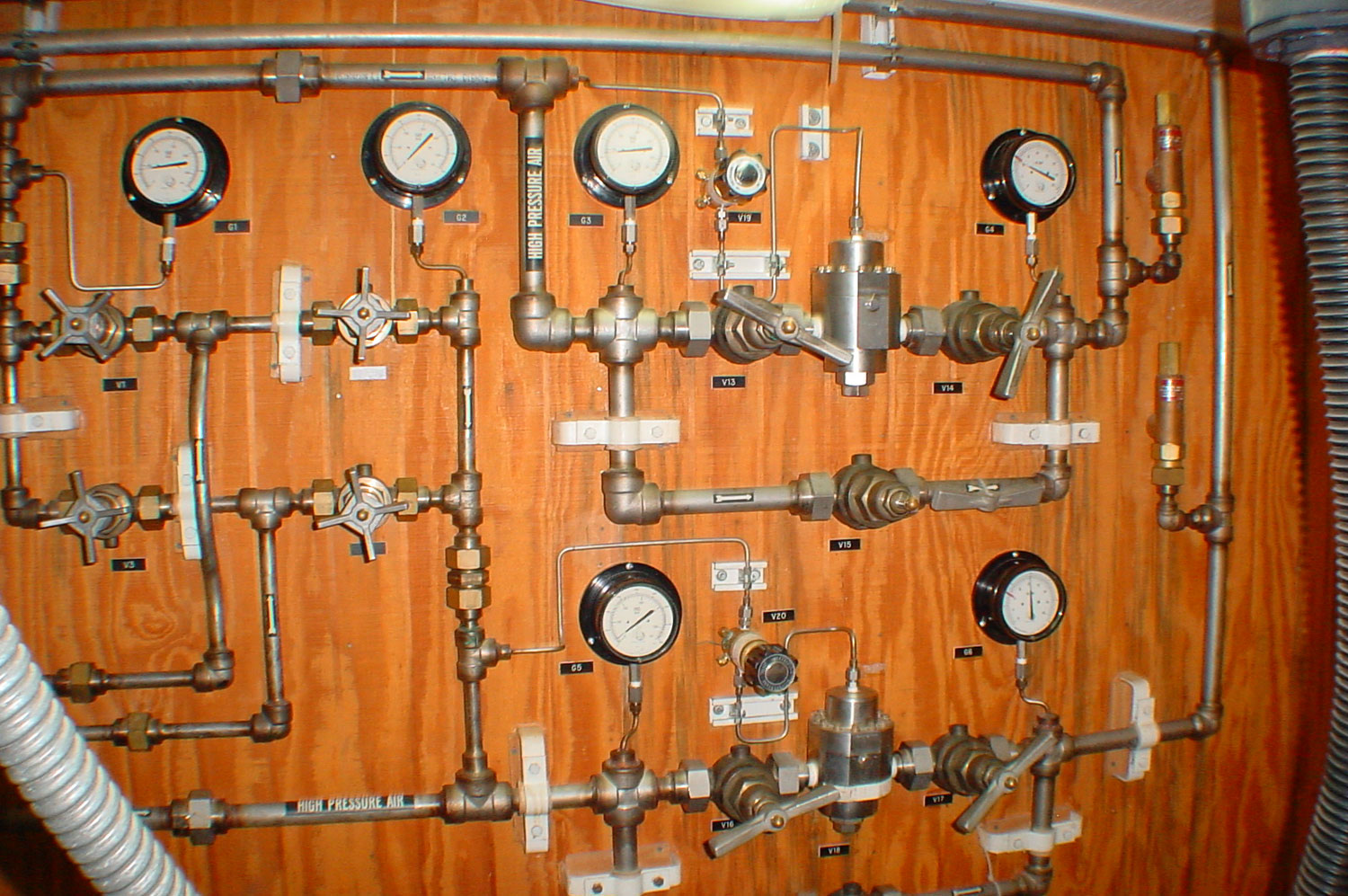
Who benefits from RCAPP?
Chambers participating in the RCAPP benefit from medical and technical assistance they receive and from the possibility in participating in one or more of the above training programs. Additionally, they are included in a mailing list, making it possible for them to remain informed about technical developments and about the organisation of any possible training opportunity in their region.
Divers, on the other hand, benefit from our partnership with hyperbaric chambers by getting access to these facilities in case of need. Through knowing the chambers and creating a partnership with them, we are able to provide our members with the best possible and appropriate care should an emergency happen.


